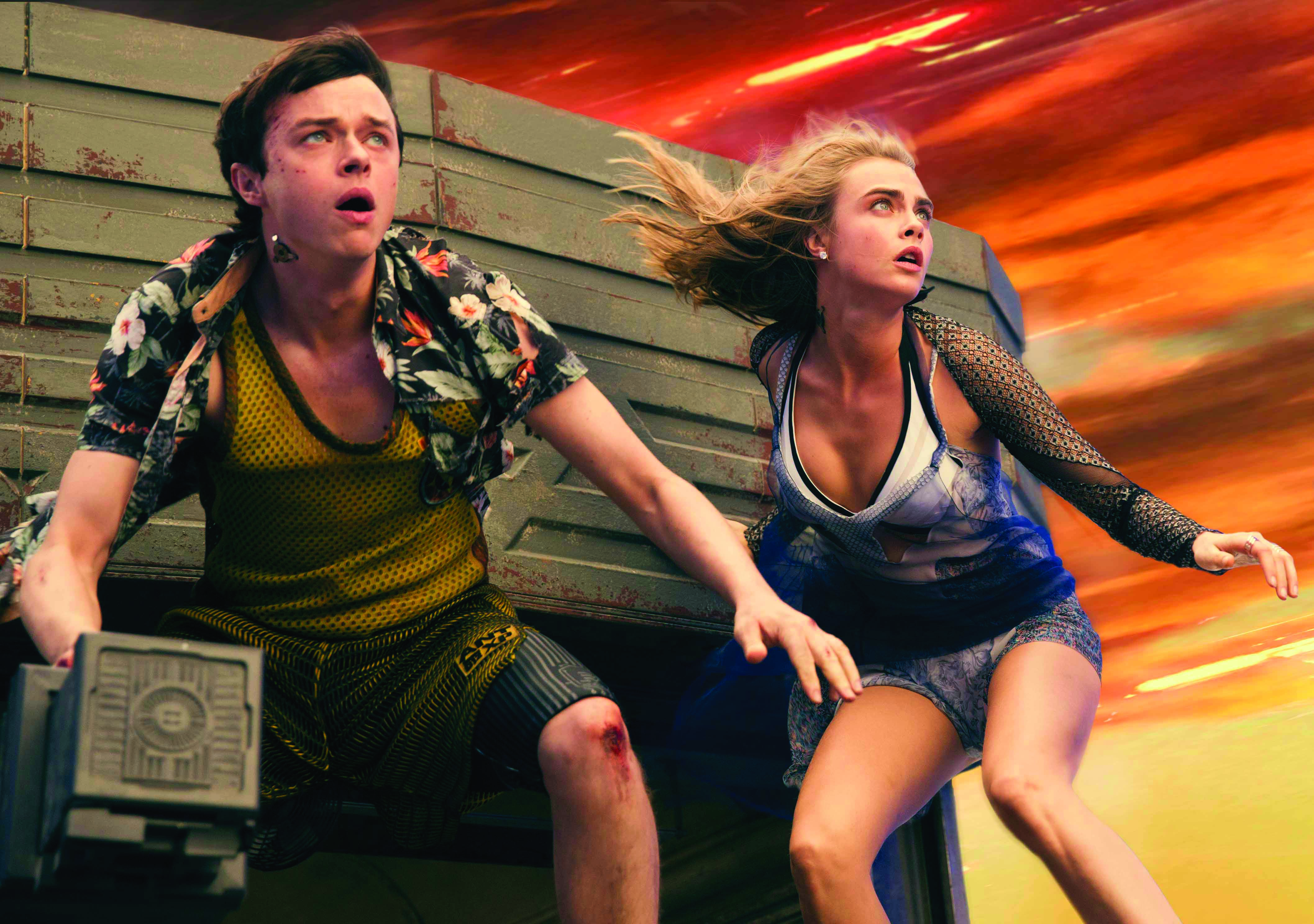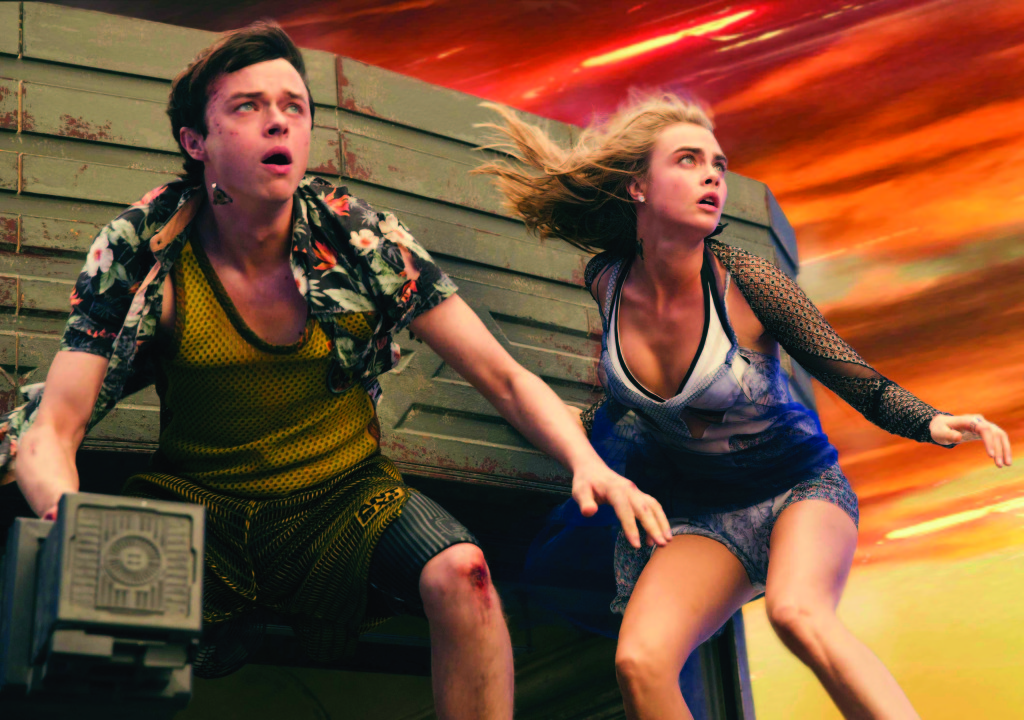Modern blockbuster film-making is calling out for a new The Fifth Element, but Valerian and the City of a Thousand Planets isn’t it.
Two decades after Luc Besson’s classically garish retro-future space opera, he’s returned to the same aesthetic; it’s another summer film based on a comic book, sure, but not what you would expect. Valerian is based on the French comic series Valérian and Laureline, written by Pierre Christin and illustrated by Jean-Claude Mézières, which began its run in the pre-Star Wars sixties. Besson, a long-time fan of the series, obviously drew on it for 1997’s weirdo favourite, and the books’ earnest Flash Gordon styling will provoke nostalgic pings in older sci-fi fans.
The comic film monopoly of Marvel Studios’ timid visual style and Warner Brothers’ muddy aesthetic is ripe for disruption, especially from film-makers with a specialised point of view. In spirit at least, Valerian is this, a whizz-popping trek through alien colours and CGI weirdness, exotic but dated, an expensive blockbuster that still feels dorky, awkward and cheap. Maybe a better comparison than Element is 2015’s Jupiter Ascending from the Wachowskis, another strange slice of space camp destined to baffle and confuse.
It’s the 28th century, and after opening on the destruction of an alien paradise inhabited by Na’vi-like innocents, we meet our couple: Major Valerian (Dane DeHaan) and Sergeant Laureline (Cara Delevingne) are galaxy-hopping federal agents, partners in law enforcement with romantic friction, Valerian’s cocky advances registered with brush-offs and secret smirks. Images of the planetary disaster come to Valerian in a dream, or maybe a memory, the annihilation linked in unknown ways to the team’s current mission. They are assigned to intercept the sale of a spongy little hedgehog, the last of its species, one that reproduces anything you feed it in little sweat beads, hailing down coins like a Super Mario brick. Mission apparently wrapped up, they are ordered to investigate a growing radioactive contamination in the heart of Alpha, a wandering, haphazardly constructed metropolis whose multiform mixing ground provides the film’s title. As they travel deeper into the city’s hidden hearts, the outlines of a government conspiracy become clearer.
The film’s best sequences are ones of frantic, whizz-popping invention, like when Valerian crashes through Alpha’s world-layers in a straight-line detour like an misprogrammed avatar tumbling through video game levels. Valerian serves up gobs of colourful candy floss and there is fun in being confronted so frequently with misshaped silliness, like jellyfish who feed on memories, or a gunfight between floating inter-dimensional bodyparts.
But the enthusiasm in the world-building isn’t matched by narrative, character or dialogue, bunging up the action with stop-start rhythms. DeHaan and Delevingne share an aloof knowingness but their chemistry feels forced, and he especially never convinces as a hero. Rihanna’s brief turn as a Cabaret space stripper is diverting, but the supporting cast (Ethan Hawke’s gurning pimp; Clive Owen as the heroes’ shady commander; Sam Spruell’s skeptical General) don’t seem much interested in the lines they’re given. For every ludicrous idiosyncrasy there’s another scene of men in uniforms frowning at screens.
For all of Valerian’s bracing aesthetic corniness, the creaky pacing and flat performances make you long, guiltily, for the smooth, forgettable competency of Marvel’s efforts. Pet project through and through, Valerian is totally bonkers and totally boring, often at the same time. Conor Smyth





